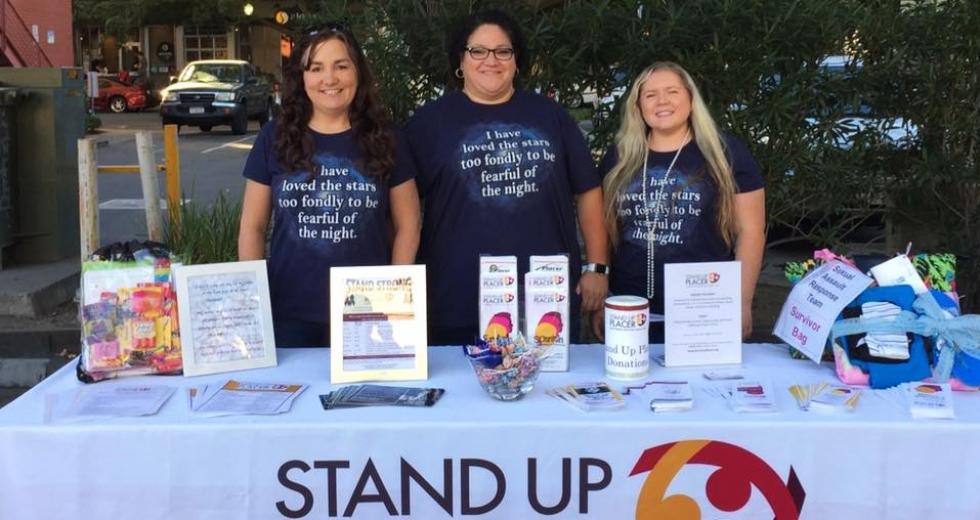Stand Up Placer has been serving survivors of domestic and sexual violence since 1978. Survivors and the children of domestic violence, sexual assault and human trafficking can find refuge, emergency services and advocacy around the clock in our 55-bed safe house. Victims get to us either by calling our 24/7 crisis line, visiting one of our service centers in Roseville or Auburn, or from law enforcement referrals.
We provide advocacy and support on-scene, in hospitals, police departments, jail, court and more. Experiencing trauma — and then being surrounded by law enforcement, medical professionals and social workers — can be re-traumatizing: The presence of an advocate who is present only to help the survivor, increases the likelihood that they will follow up with services, cooperate with law enforcement and begin to heal.
Stand Up Placer receives the majority of its funding from federal and state grants. In 2015, our federal funding agency shifted its focus and left us with a 13 percent cut and some major challenges to address. Being grant funded is a double-edged sword: It ensures that clients receive services that align with best practices, and offers privileged communications that stay between only the concerned parties. But each grant requires research, mission matching, proposal development, expenditure and adherence to program specific requirements, copious reports and creative ways to measure program outcomes and impact.
We invariably focus on providing post-crisis triage, because that is where the funding exists, yet we are determined to find ways and funds to promote care, prevention programs and ways to break the cycle of abuse and violence. Funders are generally interested only in crisis management.
Reliance on funding from grants necessitates risk mitigation on a large scale — and a real appreciation for a diversified income. Such funding provides cover for unmet needs, prevention, education and administrative costs that are generally inadequately covered by most grant funders.
Being a human services agency, the major expense is direct program salary. Maintaining highly skilled and certified staff poses a continual challenge as we attempt to trade off passion against remuneration. People work here because they believe in the cause, not because they hope to get rich. Coupled with the vicarious trauma, high stress and burnout issues we experience, staff turnover is always a concern.
To augment our internal skills and capabilities we rely on volunteers. Fully engaging volunteers in the work we do requires a laser focus on the recruitment, training, management recognition and retention of this vital workforce.
A community does not like to think that such violence exists in their own backyard, and as we support strict client confidentiality, it is difficult to publicly recognize the problem and its survivors. Without this visibility, it is challenging to spread awareness of the problem and build lasting relationships with community stakeholders.
In addition to revenue from grants, we organize multiple fundraising events each year to bring awareness to the cause and raise unrestricted funds. These events are great PR, but this is a competitive landscape and it is always difficult to generate the anticipated return on investment.
Encompassing an area that extends from the cities of Roseville, Rocklin and Lincoln through the rural and sparsely populated communities of the foothills to Lake Tahoe, Placer County’s physical geography presents difficulties for some of our more urgent services. A sexual assault that happens in a rural part of the county could be an hour’s drive away from an available rape kit and forensic examination — things that necessitate a hospital or clinic with adequate facilities and staff.
When looking at statistics it would seem that cases of human trafficking, domestic violence and sexual assault are on the increase in Placer County. This may be due to the increasing population or a greater awareness and understanding of the penal code and a more informed and active prosecution system. Regardless, we are experiencing an ever greater need for our services in the county.



